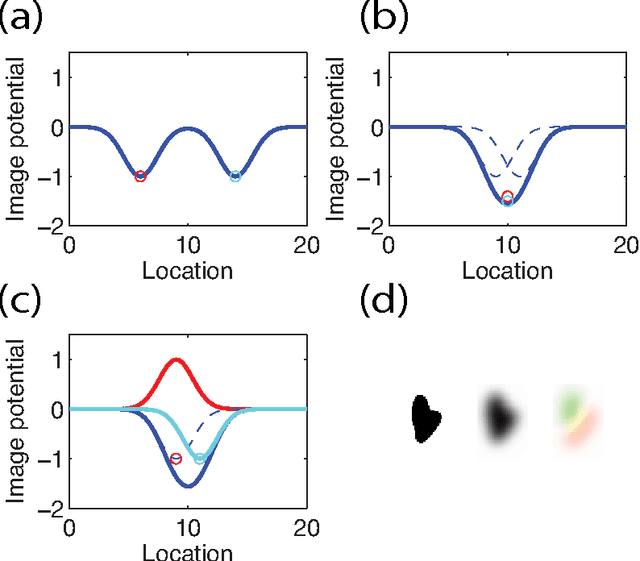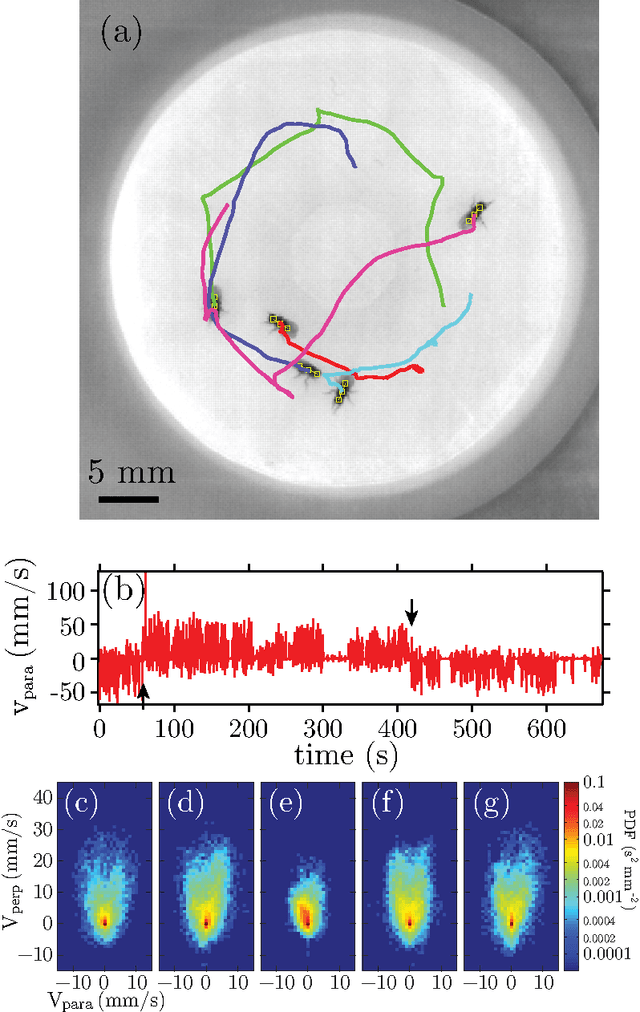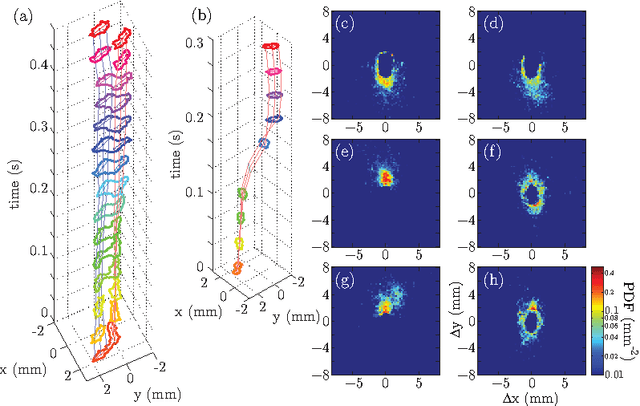Philip Coen
Efficient Multiple Object Tracking Using Mutually Repulsive Active Membranes
Dec 26, 2012



Abstract:Studies of social and group behavior in interacting organisms require high-throughput analysis of the motion of a large number of individual subjects. Computer vision techniques offer solutions to specific tracking problems, and allow automated and efficient tracking with minimal human intervention. In this work, we adopt the open active contour model to track the trajectories of moving objects at high density. We add repulsive interactions between open contours to the original model, treat the trajectories as an extrusion in the temporal dimension, and show applications to two tracking problems. The walking behavior of Drosophila is studied at different population density and gender composition. We demonstrate that individual male flies have distinct walking signatures, and that the social interaction between flies in a mixed gender arena is gender specific. We also apply our model to studies of trajectories of gliding Myxococcus xanthus bacteria at high density. We examine the individual gliding behavioral statistics in terms of the gliding speed distribution. Using these two examples at very distinctive spatial scales, we illustrate the use of our algorithm on tracking both short rigid bodies (Drosophila) and long flexible objects (Myxococcus xanthus). Our repulsive active membrane model reaches error rates better than $5\times 10^{-6}$ per fly per second for Drosophila tracking and comparable results for Myxococcus xanthus.
 Add to Chrome
Add to Chrome Add to Firefox
Add to Firefox Add to Edge
Add to Edge